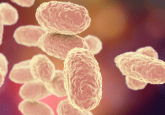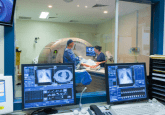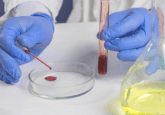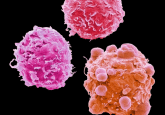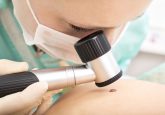Trusting your gut: the potential of microbes in cancer prevention
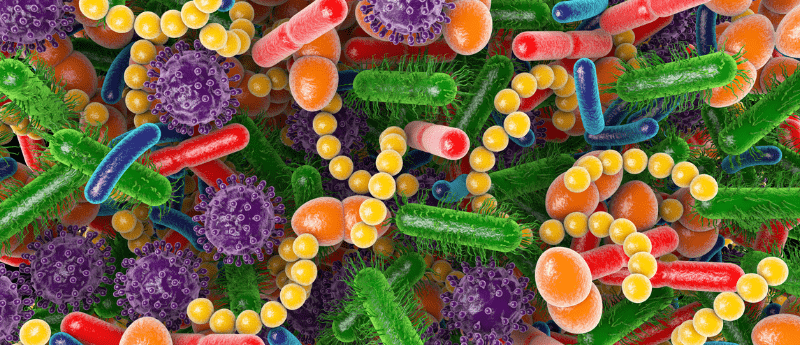
Your gut is a complex ecosystem of approximately 100 trillion micro-organisms including bacteria, viruses, fungi, archaea, and protozoans – known as the gut microbiome. These organisms live in our gastrointestinal tracts – from our mouth all the way through to our anus.
What does the gut microbiome do?
Research is ongoing, but we know it can play a big part in our health and might help to lower our risk of disease. There’s a relationship between us – the human host – and them – the microbes, working together for the benefit of both. They synthesise various vitamins, such as vitamin K and produce substances such neurotransmitters. These substances can affect our hormones, immune system, appetite and how some medications work – and the list is growing.
Fibre and gut health
A plant-based diet that’s rich in fibre, polyphenols and fermented food has been linked to improved diversity of the gut microbiome. Fibre provides a food source for the organisms, which in turn produce metabolites, such as short-chain fatty acids, that are beneficial to human health.
Fibre improves gut health in other ways, too. It helps increase the bulk of our stools, which moves waste more quickly through the body and reduces the amount of time that waste spends inside the intestines. This is one of the mechanisms by which fibre can reduce the risk of bowel cancer.
We have strong evidence that wholegrains and food containing dietary fibre reduces the risk of bowel cancer [1].
We also have evidence that women who eat more food containing fibre – both before and after a diagnosis – may have a lower risk of dying from breast cancer [2].
Eat more fibre
Adults in the UK are advised to eat 30g of fibre each day. This can come from:
- Fruit and vegetables
- Wholegrains such as rice, barley, rye, oats and wheat
- Pulses like beans, chickpeas and lentils
- Nuts, nut butters and seeds
To help reduce the risk of bowel cancer, and for general health, people should start to gradually increase the amount of fibre-rich foods they eat each day.
For most people having cancer treatment or who’ve finished treatment, it’s a great choice to eat more fibre. But for some people, such as those who’ve had some types of abdominal surgery, they should speak to their doctor of dietitian before making any dietary changes.
The gut microbiome and cancer treatment
A recent study from King’s College London (UK) investigated whether dietary patterns might influence how well certain cancer drugs work [3].
The study, co-led by ZOE’s (London, UK) Scientific Co-Founder Tim Spector, focused on advanced melanoma.
It found that patients who followed a Mediterranean diet more closely benefited the most from the cancer treatment, and gut bacteria seemed to be key.
Immunotherapy and gut bacteria
A range of treatments are available for melanoma, but immunotherapies are some of the most promising options. Over the last decade, a form of immunotherapy termed immune checkpoint blockade (ICB) has significantly improved survival rates for people with melanoma.
However, not all patients respond to these potentially lifesaving drugs and recent evidence suggests that gut bacteria might influence how effective ICB is [4]. As diet influences the gut microbiome, the scientists explored whether dietary patterns might affect people’s responses to ICB.
Following their analysis, the authors concluded that a Mediterranean-style diet that is rich in wholegrains, fish, nuts, fruit, legumes, and vegetables is associated with a higher probability of improved response in ICB-treated patients with advanced melanoma.
And they believed that the improved response to immunotherapy was likely linked to the gut microbiome. The authors note that this is a relatively small study, and more research is needed to confirm these findings.
Keep up to date with the latest research
Take advantage of World Cancer Research Fund’s free package for health professionals to keep up to date with the latest research on cancer prevention and survival.
The package includes a quarterly newsletter, a monthly e-newsletter, resources, and access to our CPD accredited online cancer prevention course.
Find out more and sign up at: www.wcrf-uk.org/package
References
1. WCRF. Wholegrains, vegetables, fruit and cancer risk [online]. 2018.
Available at: www.wcrf.org/diet-activity-and-cancer/risk-factors/wholegrains-vegetables-fruit-and-cancer-risk
2. Tsilidis KK, Cariolou M, Becerra-Tomás N et al. Postdiagnosis body fatness, recreational physical activity, dietary factors and breast cancer prognosis: Global Cancer Update Programme (CUP Global) summary of evidence grading Int. J. Can. 152(4), 635–644 (2022)
3. Bolte LA, Lee KA, Bjork JR et al. Association of a Mediterranean diet with outcomes for patients treated with immune checkpoint blockade for advanced melanoma JAMA Onc. 9(5), 705–709 (2023)
Lee KA, Thomas AM, Bolte LA et al. Cross-cohort gut microbiome associations with immune checkpoint inhibitor response in advanced melanoma Nat. Med. 28(3), 535–544 (2022)
